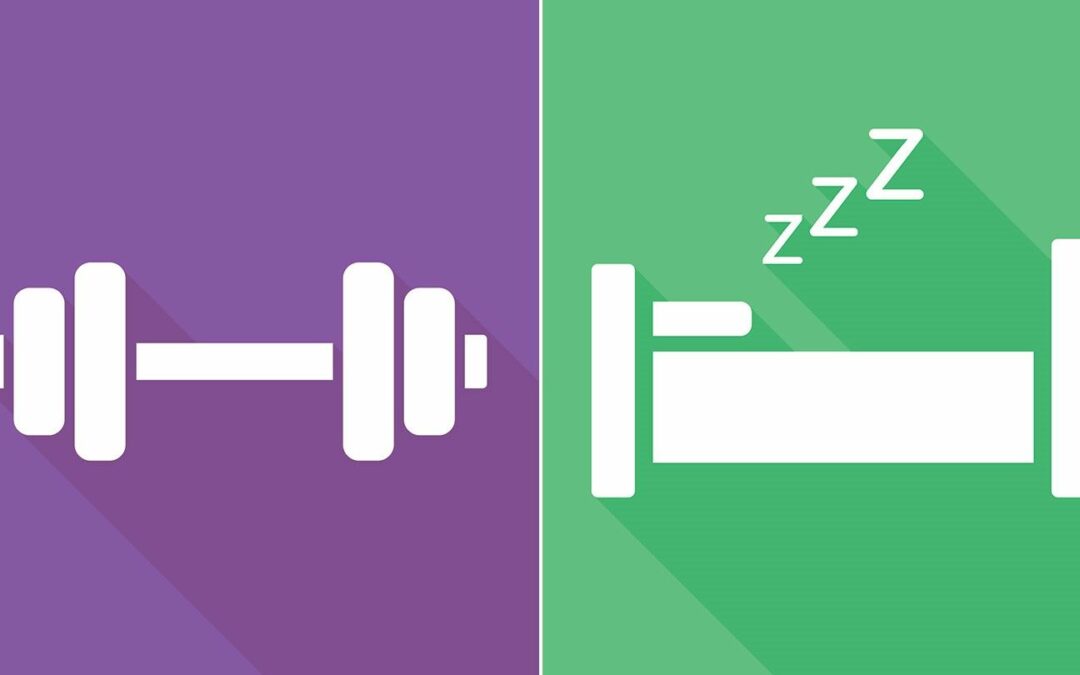Sleep plays a crucial role in both health and fitness, impacting various aspects of physical and mental well-being. Adequate sleep has been shown to motivate people to adhere to their exercise routines and enhance workout performance the following day. Here are some key points highlighting the
significance of sleep for health and fitness:
- Exercise performance: Quality sleep is linked to improved athletic performance, reaction time, decision making and memory – athletes prioritise sleep as a key component of their training routines.
- Immune system support: Good sleep supports a strong immune system, reducing the risk of illnesses that can impact overall health and fitness; it allows the body to recover from physical stress imposed by exercise, and promotes optimal immune function. Sleep deprivation weakens the immune response, making individuals more susceptible to illness and infections.
- Weight management: Sleep deprivation can lead to overeating, poor food choices, increased cravings for high-calorie foods, larger waist circumference and an elevated risk of obesity. Sufficient sleep is crucial for maintaining a health weight and supporting weight management efforts.
- Muscle recovery and growth: Sleep is essential for muscle recovering, repair and growth – it allows the body to repair and build muscles working during exercise, stimulating muscle protein synthesis. Insufficient sleep can hinder this process, making it harder for the body to build muscle effectively.
- Metabolism and tissue repair: Adequate sleep is vital for metabolism, growth and repair of tissues. It ensures optimal functioning of anabolic hormones like testosterone and growth hormones, which are crucial for recovery from exercise and adaption to physical activity.
- Mood changes: Sleep loss is associated with mood changes such as irritability, frustration, anxiety and depression, it can lead to emotional instability, difficulty regulating emotions and increased stress levels.
- Increased health risks: Chronic sleep deprivation is linked to various health issues including obesity, diabetes, cardiovascular diseases like heart disease and strokes, as well as mental health conditions like anxiety and depression.
In conclusion, prioritising quality sleep is fundamental for achieving optimal health and maximising fitness outcomes – it plays a vital role in muscle recovery, metabolism, immune
function, cognitive performance and your overall well-being. If you are aiming to improve your health and fitness levels, ensure that you have adequate and restful sleep; this is as important as maintaining a balanced diet and engaging in regular exercise routines.
To optimise health and fitness, it is recommended that adults between 18-64 years old get 7-9 hours’ sleep per night and over 65 get 7-8 hours’ of sleep, however individual needs may vary, and some people may require more/less sleep than the recommended based on factors like genetics, lifestyle and overall well-being. To track your sleep, there are many brilliant Smart watches available such as Garmin, Whoop, Fitbit etc that you can also use to count your active steps and how many calories you have burned, however a watch is not a necessity, you just need to make sure that you have enough sleep as it really is the most important thing!
A personal trainer is an investment in your health and well-being that can lead to long-term positive effects on your fitness, confidence, and overall health. PT Hale prides itself on being a social and safe space where you can workout individually, or with like-minded people to get the results that you want and deserve – LET’S GO!











